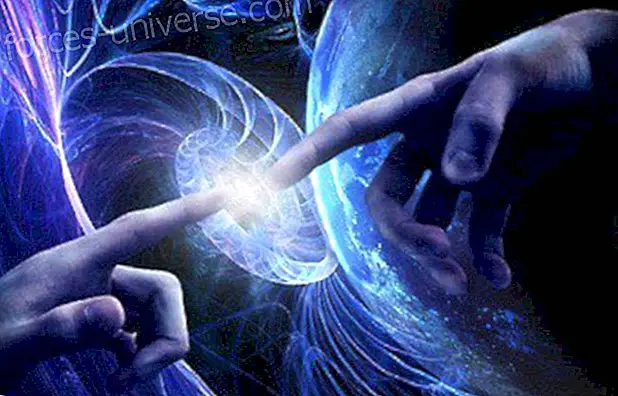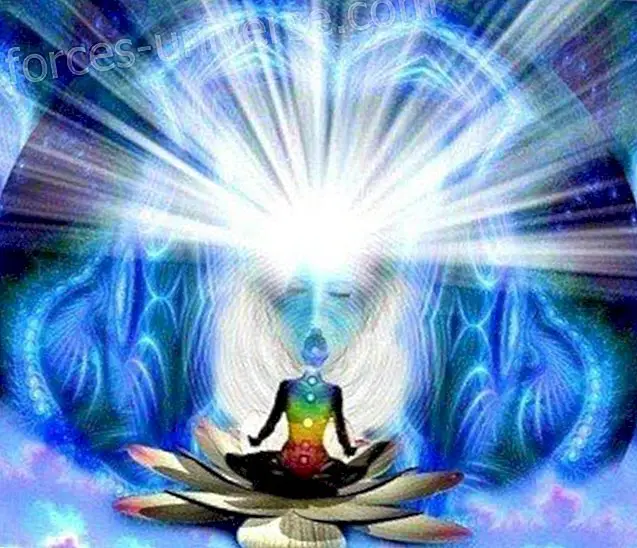The Ten Principles of Happiness by Master Kwan Yin, 2nd Delivery, December 2010
- 2010
2nd Delivery
5. THE SEARCH FOR HAPPINESS.
We had said that the path to happiness is a path that oscillates between the joy of accepting things, of experiencing being alive, being part of the universe, and that other state that drives change, overcoming, to move towards others. higher levels of harmony and fulfillment. We said that the balance between these two states was the key to individual harmony, but these forces, these tendencies that human beings manifest, are overlapped and worked interchangeably in their minds, so that they do not even experience a state of permanent peace and harmony., nor can they sustain a permanent evolutionary impulse; This results in, in the first instance, a state of unhappiness or continuous dissatisfaction, and on the other, an inability to reach greater states of harmony.
Both factors are important: on the one hand, the ability to appreciate life and all its manifestations, the ability to marvel at the creation, of itself, of others and of all the things that surround us, is a derivative of acceptance of the world as it is and of the communion that the being establishes with nature; but, on the other hand, by not being able to maintain a continuous and sustained impulse towards an ideal, it prevents man from devoting all his forces towards the fulfillment of his accomplishments, his personal goals, and therefore, that oscillating, This indecision keeps him stuck in the same state he is in, which, combined with the unhappiness he manifests, results in a being with conflicts.
The essence of happiness.
The search for happiness should not be aimed at achieving certain things, nor should it be understood as a long study for the understanding of some concepts, happiness is like an awakening, it is instantaneous and does not require prior preparation; Happiness is a state of consciousness that is reached at times in all human beings, but due to restless minds and untrained hearts, these states are momentary, of very short duration and, unfortunately, involuntary, the individual, even, He does not even suspect that for moments he has had moments of happiness and that these states can expand as he trains to stay longer in that harmony.
Where is happiness born?
The dynamics of mental processes make it difficult for man to perceive the present as the only state of consciousness that is capable of granting him happiness; Since happiness is born from the communion established by the human being with the environment, of necessity, this is only achieved when the present is lived. Even when the person can experience or reexperience harmonic moments when he evokes some sweet memories of his past, or when he dreams of some facts of his future, happiness experiences it in his present, although for this he has had to resort, or past experiences or his future dreams; In those cases, although the emotion is genuine, the resources that have been used will not help you to have those moments of happiness can be provoked at will and can even really transform your life, they are still tools, instruments and skills that they work as defense mechanisms, to avoid, perhaps, a present that continually challenges you to solve the problems you have.
However, in this search, when the human being reaches a certain age and feels impaired his abilities to modify, both his personal life, and the environment in which he moves, his mind seeks, more and more frequently, the memories of his past, takes refuge in a past that no longer exists, and we say then, that the person has given up living; In short, this is a problem, because it incapacitates the person to continue solving everyday problems. To live in the past or in the future is to miss the opportunity to continue evolving and to appreciate, in all its dimensions, the wonderful life that moves around us.
How to be an instrument of God on earth.
Communion with the life that surrounds us, is to understand the divine forces that move, drive and transform nature, is to understand the divine designs around us, is to merge our wills with the divine wills that are manifesting in each of the created things. From that state of perfect communion with creation, a new state of permanent creative activity is born; only the being who has managed to establish complete communion with nature can work in complete creative activity, manifesting an inner and outer harmony evident to all; his words and his actions will be congruent with his thoughts and feelings, his life will be a blessing from God working on his behalf among human beings, his gaze will be God's gaze, and his words, the divine will expressed by a human being.
Techniques to find and expand happiness.
How can these states be reproduced at will? How to ensure that the momentary sparks of personal harmony that every human being experiences in their lives can be controlled, evoked and expanded, to make them our permanent level of consciousness? This is undoubtedly one of the great searches of humanity in all times. What I intend with this work, is precisely to present some techniques that could serve them for this purpose:
Live in the excitement of living.
Live in the understanding that God is with us.
Live working in the Divine Will.
They are some of the multiple fruits that are achieved when this state of consciousness has been mastered.
Bless all the mothers of the world.
So, today, on such a special date for all of you, (the mothers day in Mexico) I wanted to bring you this gift, the keys to finding happiness in a simple and easy way ethics I would also like to add, although perhaps my words arrive out of time, to the homes of all the mothers who have chosen this as their path in life, that all my love and my respect for you, is so s Just a small present for the sublime mission that you yourself have chosen to accomplish on earth. The apostolate of a mother, who endorses the mission of educating and preparing to be happy for her children, is the most noble task that a human being can undertake in her life, and I want to tell you, that love that you feel for your children, is the greatest and most wonderful force that God has created for all of us, a force that moves the worlds, a force that gives cohesion to the atoms, a force that drags storms and still the oceans.
My eternal blessings, my gratitude to all the mothers of the world, I wish that in their apostolate they may find the highest realization as human beings. God bless you.
6. DECENDER TO GET HAPPINESS.
The power of the mind of man.
The mind of man has a great influence on the moods of being; throughout his life, the mind has accumulated so many experiences, so many memories, that in reality, the behavior patterns of a person are nothing but the result of the different associations that the human being makes in his mind, caused by the experiences of the ones that are happening; but also, in the mind of man, lies the secret of happiness.
We said that happiness can only be experienced in the present, that both the past and the future are nothing but attempts to escape from an unsatisfactory reality for the being. When the mind resorts to past experiences, man lives in an unreal time, is disconnected from what his body experiences and we say that there is no integration. To enjoy happiness requires being integrated, fully integrated, emotions and sensory experiences must be enjoying the present. The happiness that is achieved by savoring a past event or fabricating a future event, is not a real happiness because there is no integration of being; it is necessary that the human being learn to enjoy his present, keeping his mind, his emotions and his perception of life, fully integrated into the experience of that moment.
However, the tendency of man to lose himself in mental labyrinths is so strong, forgetting what life gives him in every moment, that it is necessary to give some techniques that allow him to return to his ideal state of the present. We could then speak of a decalogue of principles, ten keys that can give man enough mental foundations that allow him to firmly strengthen his present and learn to enjoy it, ten keys that must be universal, alien to nationalistic or religious principles.
Let us begin, then, to design these first ten formulas, which allow man to remember, at all times, that his happiness is at his fingertips, at this precise moment and at all times.
THE TEN PRINCIPLES OF HAPPINESS
l.- No one is going to give me happiness, only I can get it. In this first thought, the human being takes responsibility for his life and begins a search and an effort to find what he is looking for so much.
2.- I am a unique being in all the earth, nobody understands me better than me, and nobody knows what I need better than me. In this second principle the basis is given to eliminate any offense that people receive from others; Any comment that depresses a person can be nullified under this principle, since the person acknowledges that no one can comment on them, since no one knows them better than themselves.
3.- What I receive now is what I sowed yesterday, and what I sow now will be what I receive tomorrow. This third principle allows the human being to recognize that current problems are the result of incorrect actions of the past, but that, for the same reason, the present moment is the one indicated for sowing a future.
4.- Neither the past nor the future can hurt me, only the present has value in my life. Understanding this fourth principle, the person will give all the value that has its present moment and will downplay the past events that cause remorse, and future events that cause distress.
5.- Only I decide what I should do at this time. That is, the human being understands that outside influences are just that, influences, and he is the only one who can decide what to do at that moment.
6.- Only in love and in inner peace can I make the right decisions. That is, if we are to act in the present tense, we will have to do it in peace and with love, because in this way, the actions we take will be inspired by our highest capacity for both service and intelligence.
7.- In my decisions I will always take into account the benefit of others. That is, I will make those decisions that benefit the greatest number of people; In this way, my life will be heading towards the highest glory that is to receive compensation for the service rendered to others.
8.- My face is the reflection of my inner state. That is, we always take care of the appearance of our face, let us always adorn it with the smile, and that the eyes are always ready to send a look of love, because in this way we will be reflecting the serene harmony of those who have learned to walk on the path of happiness.
9.- I am a man at the service of humanity. That is, everything I do, everything I say, everything I think or feel, will serve the glory of mankind, or else, the destruction of it.
10.- I have a mission in life, be happy and make others happy. This last principle gives meaning to our existence, and, at the same time, directs our efforts towards the benefit of all humanity.
What is beyond these keys, what could we say besides the mentioned of each one of them? Later we will see that behind these principles, there is a path that will allow all human beings to always keep in their mind the keys that will allow them to reach a life full of peace and spiritual harmony.
Three ways.
The path of happiness is so wide, that all mankind would fit into it, if only I knew how to stay in the present. The past, the present and the future, resemble three paths that float in space. The middle path is the present, it is a firm, still path, it does not move, it is the human being who walks on it, it is the human being who advances.
The path on the left is the path of the future, that of dreams and fantasies, that of anguish and fear; that path starts the man from the present and takes him vertiginously into the future, there the man does not walk, it is the path that moves, but only moves a space and then turns on himself, letting the person fall again On the still path of the present, the road flies, but always returns to the same point, leaving the human being with the feeling of not having moved an inch from the place where he was.
The path on the right, is a path that moves equally, but backwards, it tears the man out of his present and takes him immersing him in darkness, presenting him with spooky images, some pleasant and others full of cruelty and pain; that path also moves, although slower, and where the scenes become, or more painful, or more pleasant; it seems as if the path stops, it remains still for a while while the images embellish the person, and, suddenly, the floor fades, the images disappear and the person returns to the original path of the present.
Only the path of the center, the one that is still, is the only safe, the only firm, and in it, man can walk and really feel that he is moving forward. Behind this allegory are many keys to meditate in the future and in the past, and learn to value the present.
Every human being must make an effort to live in the present and depart from those unhealthy tendencies of living in hypothetical realities of the past and the future.







